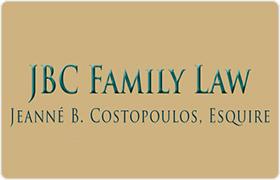Cumberland County, PA Divorce & Family Law Lawyers
Sponsored Law Firm
-
 x
x

Click For More Info:
-
Law Office of Jeanné B. Costopoulos
1104 Fernwood Avenue Suite 104 Camp Hill, PA 17011» view mapDivorce & Family Law Experienced & Aggressive Representation
Attorney Costopoulos' practice is focused exclusively on family law and is known by her clients as patient, confident, always responsive and aggressive when needed.
800-497-8501
Gregory S. Hazlett
✓ VERIFIEDGregory Hazlett is a practicing attorney in the state of Pennsylvania. He graduated from Widener University School of Law with his J.D. in 1993. He cu... (more)
Daniel Pollock
✓ VERIFIEDDaniel Pollock is a practicing lawyer in the state of Pennsylvania.
Michael D. Rentschler
✓ VERIFIEDMichael Rentschler proudly serves Camp Hill, Pennsylvania and the neighboring communities in the areas of divorce & family law, criminal, and estate l... (more)
Edmund J Berger
FREE CONSULTATION
CONTACTSusan Kay Candiello
Jay C. Whittle
FREE CONSULTATION
CONTACTFREE CONSULTATION
CONTACTShane Kope
FREE CONSULTATION
CONTACT Jeanné Costopoulos Camp Hill, PA
Jeanné Costopoulos Camp Hill, PA Practice AreasExpertise
Practice AreasExpertise



